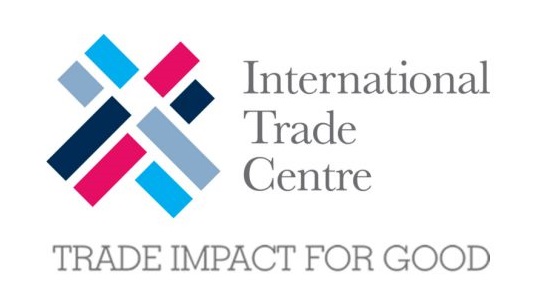Tips for International Business
Tips for International Business
International negotiation is the instrument of international relations that aims to facilitate the pursuit of a particular goal. The negotiations serve to enable trade liberalization between countries and to ensure a safer environment for producers and investors.
Many executives still rely on “intuition” to conduct and close deals, and this is an association with primitive attitudes. The market does not accept home-based solutions and knowledge that are restricted to the executive’s environment as ways to resolve conflicts and negotiation interests.
The variables of a negotiation are many, even more so when it comes to global negotiations, where differences and variables are even more delicate. As all negotiations are done by people, they carry with them a cultural baggage, shared values and norms throughout a lifetime. This requires the international negotiator to understand the behavior and strategies of the person sitting in front of him.
Each culture has its way of organizing, communicating, taking actions, different ways of exercising hierarchies and power. They have different decision-making processes, they involve different people and different legal aspects. Therefore, the negotiator who does not consider these subjective aspects, may lose a negotiation or go through situations of embarrassment. At these times, cultural understanding is key to building a relationship of trust, and can be considered as a business strategy. Thinking about the possibility of using cultural understanding as a strategy, here are 10 tips for international business:
1 – Interaction of languages, symbols and values: Regardless of what you are negotiating, remember that there is interaction between people and this results in an interaction of languages, symbols and values. Break your paradigms and discard practices that you are accustomed to adopt in the domestic market (both legal and behavioral). If your intention is to win over the client and maintain a relationship of trust, study your culture, your acceptable behaviors, participate in intercultural training and respect the practice adopted by the other side (respecting does not mean agreeing).
2 – Understand “who are” the people involved in the business: Find out who the people are and also try to understand the role of these people in the organization, so you do not run the risk of granting a concession ahead of time, or “have an ace up his sleeve”. Try to find out who is part of the decision-making process.
3 – Power of Decision x Power of Knowledge: Some countries associate “power” with the amount of information and control over the product that the negotiator passes during the negotiation process, but there are countries with more hierarchical cultures that prefer to close deals only with the high level of the company, therefore they will need to know their hierarchical level and their decision-making power.
4 – Cultural language: Understand local etiquette, what is allowed at the time of greetings, behaviors that are considered inappropriate, appropriate behaviors (eye contact, demonstrating emotions or not, remaining silent, touching people, importance of the relationship, degree of formality in the negotiation). They seem to be secondary, but the Frenchman prefers the negotiator to look into his eyes when closing the deal. Already the Orientals feel the “eye in the eye” (which for Brazilians inspires confidence) as challenging and aggressive, and can even be interpreted as a confrontation, and usually respond to these smiles (which do not mean joy, but rather embarrassment). Aggressive approaches frighten the Portuguese. For the Chinese, more important than “what is said,” is “what is not said.” They worship silence and listen, shaking their heads as they analyze, but that does not mean they are agreeing.
5 – Time: The notion of time is different and time has different values in the various cultures. For the US “time is money”. In China, time helps to know the habits, so the negotiations are slow.
6 – Be punctual: Being punctual is synonymous with responsibility and respect for the other party involved in the negotiation. This is also one of the behaviors that are being adopted as standards for all countries during business rounds and international meetings. But do not bother if Latin American or Middle Eastern negotiators are late. But Americans, Swiss, Germans and Australians have no habit of being late for their business commitments, so if that happens try to identify what has happened and how important this negotiation is for them.
7 – “Make Lemon a Lemonade”: Using a very Brazilian expression as metaphor, take advantage of cultural differences to excel in business. Use your knowledge of culture as if it were a tool for achieving competitive advantage during the negotiation process. Intercultural training is great for developing these skills.
8 – Identify the strategy: Identify whether the country values individualism more (autonomous individuals, norms) or collectivism (social obligations and collective interests). This will give you clues to understand what strategy the negotiator will use. The individualist, for example, could focus his strategies on obtaining positive and rapid results, since the collectivist will approach family issues, try a social approach and then talk about business.
9 – What you say, is not always what others understand: Before choosing a business strategy, try to understand how the perception process of your client, partner or supplier happens. Life history, worship values and the way they live are factors to consider. We often say things that are not well interpreted by others.
10 – Respecting the culture of another does not mean submitting to it: Build trustworthy and enduring relationships. The market is becoming more competitive and open, so establishing partnerships around the world is a great strategy for survival. But for this to happen it is necessary to know your partner, respect your culture and cultivate the relationship.
The Tips for International Business
See more articles for International Business on our blog: https://blog.intradebook.com/
Tips for International Business. Based on article by Graziele Zwielewski, cognitive psychologist specializing in international management and administrator.
Image: Lucknow







